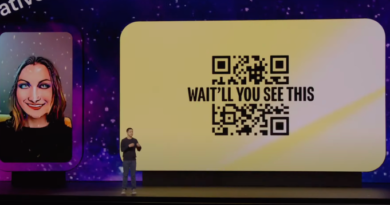Félix Pago raises $15.5 million to help Latino workers send money home via WhatsApp
Remittances from workers in the U.S. to their families and friends in Latin America amounted to $155 billion in 2023. With such a huge opportunity, banks, money transfer companies, retailers and fintechs are all trying to make transfers more convenient on both sides of the transaction.
Fast-growing startup Félix Pago is one of these players, and recently raised a $15.5 million Series A round of funding to grow its presence in Latin America and the U.S., TechCrunch learned exclusively. Its main interface is WhatsApp, with a chatbot that makes it simple to send and receive cross-border money transfers, even with a voice message.
“I like to say that WhatsApp is the operating system of the region, so it makes sense that we build something on WhatsApp to make it super easy,” CEO Manuel Godoy told TechCrunch.
WhatsApp itself already enabled peer-to-peer transactions and the option for users to pay businesses through chat, but only in Brazil and India. But a broader rollout wouldn’t be bad news for Félix and similar solutions like BidSend, Leap Financial and Zapp — if users can use their card on WhatsApp, remittances would only be one click away, Godoy says.
Meta currently seems to see these third-party developments favorably. Its WhatsApp for Business blog highlights the use case of Nicaragua’s LAFISE Bank, which built a virtual assistant in WhatsApp to make remittances smoother.
But Félix Pago has a broader purview. Other than WhatsApp, which they already have installed, “users don’t have to download any app,” Godoy said. On the U.S. side, users complete most of the transaction details via the WhatsApp chatbot; it’s only at the last step that they have to click on a link to securely fill in their debit card information. And on the other end, money can be collected instantly in local currency as a bank deposit, but also in cash at a store.

Cash is often what recipients prefer, so Félix Pago adapted to that reality and made partnerships to have cash pickup locations in Mexico, Guatemala and Honduras. For an extra $1.99, “the sender receives a receipt with a unique ID number and they send this receipt to the beneficiary to show it to the teller so they can pick up the cash.”
A lot more is happening behind the scenes, thanks to in-house and third-party tools that Félix uses to comply with its obligations and optimize its operations. There’s KYC, AML and fraud prevention; and there’s crypto, Godoy said.
By using Circle’s USDC stablecoin, Félix Pago is able to make savings on foreign exchange that it can pass to users. USDC’s 24/7 availability also reduces Félix’s pre-funding needs, enabling it to make the first transaction free, as competitors Remitly and Western Union do. Félix then charges $2.50 on subsequent transactions to Guatemala and Mexico, while it opted for tiered pricing for Honduras. Overall, this makes fees much lower than on SWIFT transactions, which are also slower.
“Crypto is a powerful enabler for remittances, but you have to abstract that from the user. The user doesn’t care about that. I always say that it could be a donkey crossing the border, it doesn’t matter. What they want is the money, the local currency and they want it instantly at the best possible price. And crypto enables that on the back end.”
Since Félix relies on USDC and crypto partners, Godoy thinks the domain expertise of its new lead investor, Boston-based crypto fund Castle Island Ventures, makes it a welcome addition to its cap table. “We’re already leveraging some of their portfolio companies to make our infrastructure more robust, and one of their partners, Nic Carter, is one of the leading experts in USDC [and] stablecoins, so I think that gives us a lot of leverage.”
Switch Ventures, the fund that led Félix’s pre-seed extension round in 2023, also participated again, as did investors that took part in its previous $2.5 million pre-seed round, including HTwenty, Contour and MELI Capital, the corporate venture capital arm of Latin American e-commerce giant Mercado Libre, whose partnership with Félix gave the startup a significant boost.
Under that partnership, Mercado promotes Félix Pago to users of its payment platform Mercado Pago in Mexico. Those referrals accounted for 25% of its new users at the time.
A similar partnership with neobank Nubank followed, giving Félix’s growth another bump. “The cool thing though, is that today we continue growing roughly 30% month over month, but it’s not just because of those partnerships,” Godoy said.
Referrals are its main growth engine, but the company also relies on influencer marketing and Facebook to make itself better known among its target audience in the U.S. So far, most of its users there are blue-collar Latino professionals working in construction, food and home services.
This makes Godoy confident that Félix will remain complementary to Nubank and Mercado Libre, even as the latter expands its fintech plans. (It is reportedly seeking a banking license in Mexico.) “They don’t have a product in the U.S., so ultimately the sender is a Félix Pago customer.”
Félix Pago also hopes to help these customers with more than remittances. “The vision that we have for Félix is to become the trusted companion for the Latino immigrant in the U.S.” Its roadmap includes a credit builder and, eventually, actual credit.
First, though, the startup will use its new funding to expand into El Salvador and Nicaragua, followed by the Dominican Republic and Colombia, and then the rest of Latin America. That’s a necessity if Félix wants to move further on its roadmap and have an edge on other companies aiming for the same spot.
“To become that trusted companion of the Latino in the U.S, we have to solve the [remittances] problem for all Latinos,” Godoy said.




